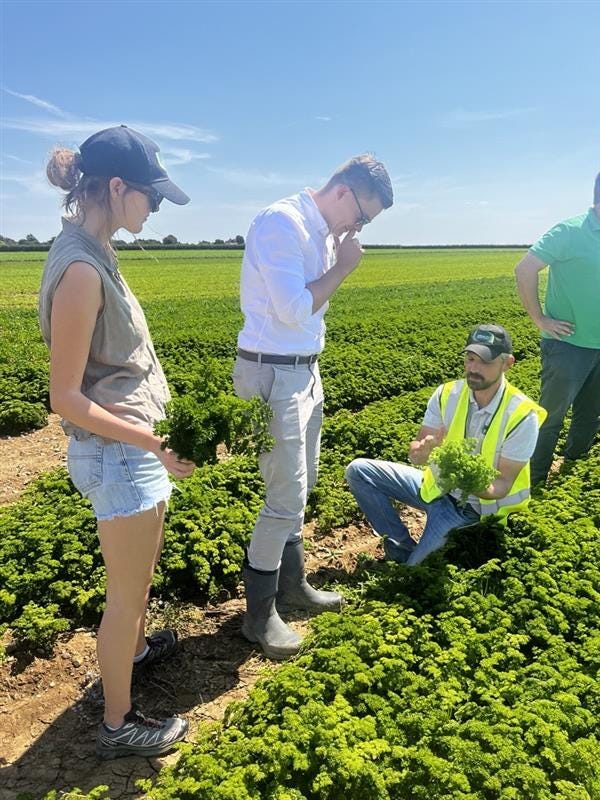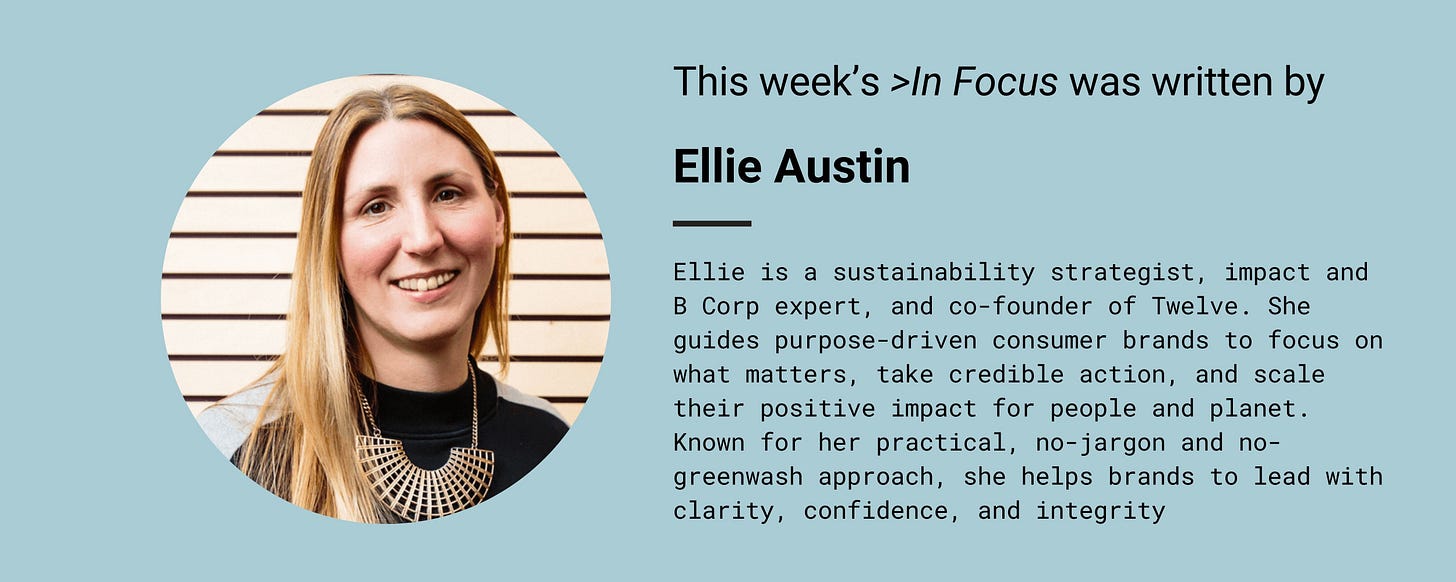🌱 Collective action on climate: stepping up to meet the new B Corp standards
5 key pathways to meeting the collective action requirements
Some of us spent this weekend eating chocolate eggs, some of us spent it pouring over the new B Corp standards. Each to their own I say! Maybe it was just me actually. We have written about the standards before but they were still in draft, we are hoping, praying, knocking on wood and trying to steal the Easter Bunny’s foot, that this is the FINAL iteration of the standards…at least for a while!
I do know I’m not the only one who dropped everything to get my head into the fine print, fellow B Corp expert, Ellie, also delved into the standards and took some time to get us up to speed on one of the new requirements - collective action.
Let’s dive in…
> A message from this week’s sponsor…
They’ve supported brands like MOTH, JUBEL, and MOJU on their climate journey — and now they’ve launched a new ESG reporting tool to simplify disclosures, including for frameworks like B Corp.
Explore the tool to streamline certification and make reporting easier than ever.
> In Focus…
No Business is an Island: How B Corps are Collaborating for Climate Impact
The bar for what it means to be a responsible business just got higher. The new B Corp standards were published last week, and they are a game-changer.
In the biggest update to the certification in nearly two decades, the new standards move beyond scoring points and box-ticking, and focus instead on raising the bar across seven new impact topics.
While there are plenty of changes to unpack, one of the most interesting (and misunderstood) new topic areas is ‘Government Affairs & Collective Action’.
Errr… collective what?
While ‘collective action’ feels jargon-y, it’s about big ideas and influencing systems change. It’s a bold shift that recognises in the face of the climate crisis - and a wider polycrisis - no business can afford to act alone. Brands must take action beyond their own operations and collaborate for systemic change.
What is collective action, really?
B Lab defines collective action as:
“A collaborative and sustained process of cooperation between stakeholders to bring about systemic change... increasing the impact and credibility of individual action.”
While that may sound abstract, in practice it’s about brands supporting and learning from each other, co-investing in solutions, influencing public policy, and helping shape a fairer and greener economy.
The new B Corp standards require businesses of any size to take at least one collective action, and this builds up to require four actions by the biggest companies. You can take collective action on any social, ethical or environmental topic. There are also additional requirements for bigger brands on responsible lobbying, tax and public policy transparency.
The good news? You don’t have to go it alone, and many B Corps are already leading the way.
Below, we’ve rounded up how leading B Corp brands are taking collective action. We’ve chosen to focus on actions related to the climate crisis across five key pathways highlighted by B Lab.
5 key pathways
🌿 1. Supporting external research
Climate solutions require investment and collaboration. Charlie Bigham’s is working with suppliers on regenerative agriculture, including a 600-hectare parsley farm in Kent and Essex. They’re supporting trials to reduce chemical inputs, cut carbon, and boost biodiversity in farming - investing in solutions that benefit the whole supply chain, not just their own footprint. Read more in their impact report here.
🤝 2. Multi-stakeholder collaboration
Working with others is a much more effective way to accelerate progress. Over 60 certified B Corps, including Natura & Co, Beauty Kitchen, UpCircle, and Rituals, have joined forces through the B Corp Beauty Coalition. Their goal? To improve the sustainability standards of the beauty industry. The coalition’s free and open-source ‘B Beauty Navigator’ tool helps beauty companies and shoppers make more informed decisions around ingredient sourcing, responsible packaging, and greener logistics. By sharing knowledge, championing best practices, and engaging upstream suppliers, the coalition shows how collective action can create more positive impact.
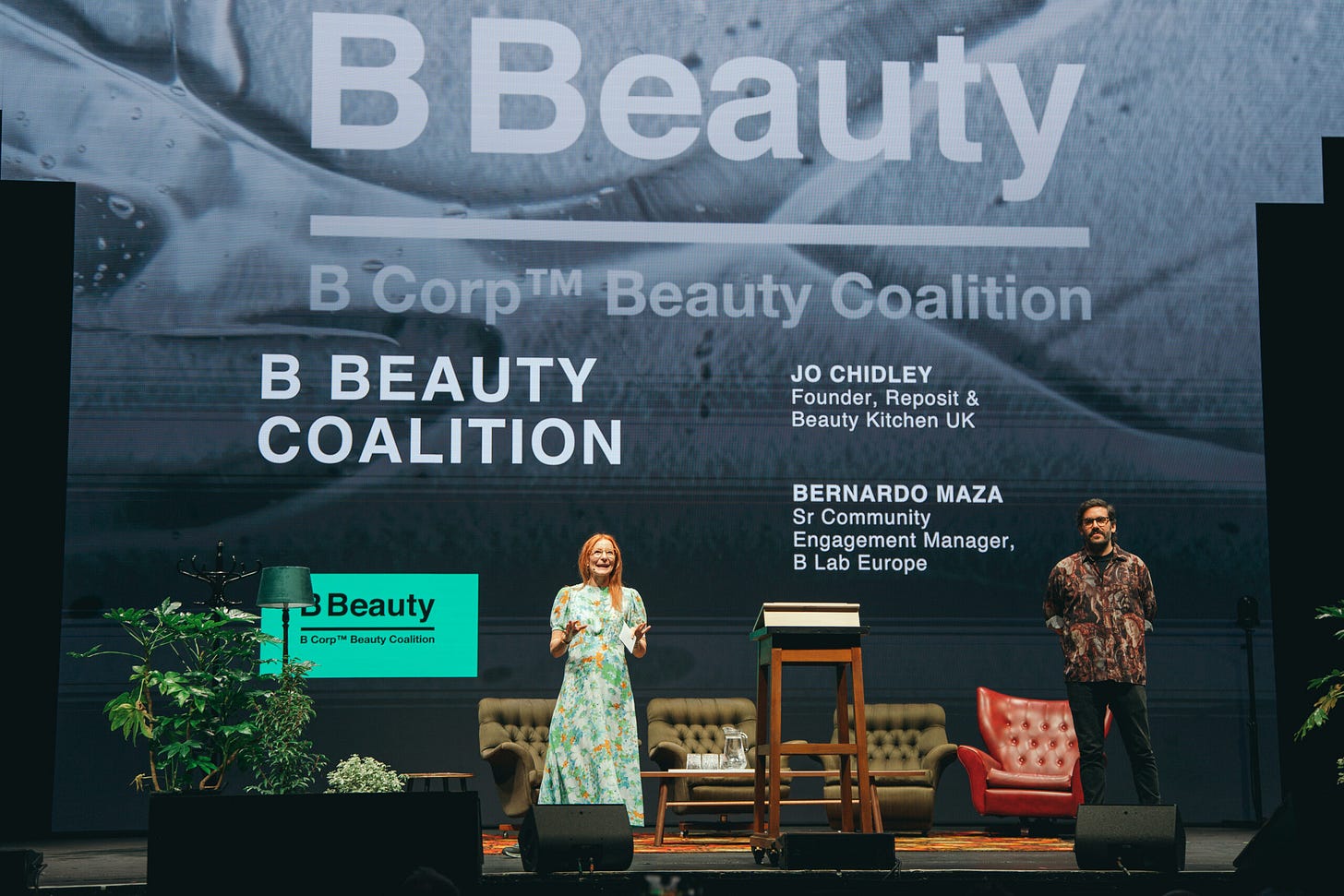
🗳 3. Promoting public policy change
To drive change, we need new laws, and businesses can play a key role in calling on governments to act. Toast Ale brew beer using waste bread, and they’ve used their products for climate advocacy. Past advocacy campaigns include Rise Up, where they partnered with fellow B Corps to brew limited-edition beers to raise awareness of the climate crisis and call for policy change. They encouraged thousands of people to contact MPs about food system reform, ahead of UN COP climate negotiations. This shows how small businesses can influence national policy.
🌊 4. Thought leadership
Some brands are finding powerful ways to activate and engage their customers to take environmental action. Finisterre’s Sea7 Ocean Activist Masterclasses have reached thousands, connecting climate and ocean health in people’s minds. The masterclasses help those who love the ocean to understand it’s one of our planet’s most powerful climate regulators, soaking up over 90% of excess heat and around a quarter of all CO₂ emissions. By spotlighting climate activists’ voices and providing free resources, Finisterre is linking ocean and climate narratives. This shifts the focus from abstract climate targets to the tangible places we love and want to protect, like our oceans.
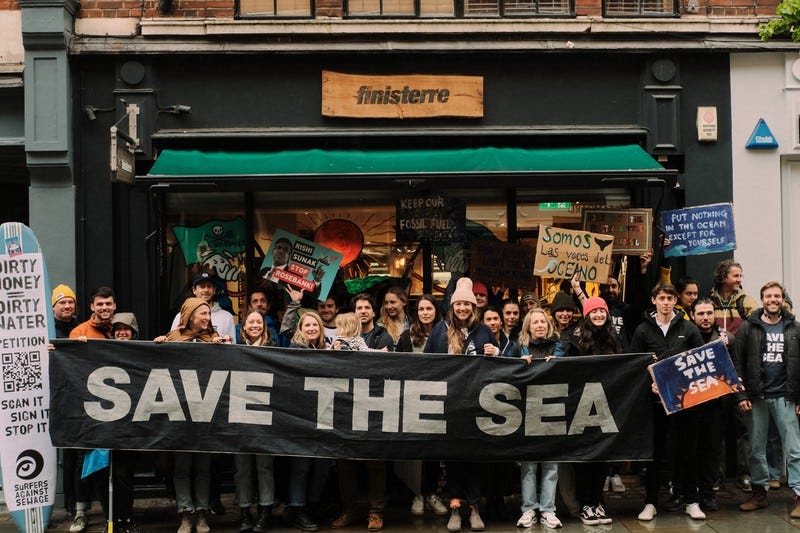
💬 5. Mentoring
Sharing insights and learnings with others is a way to drive faster progress overall. B Corps including Ella’s Kitchen are paying it forward by mentoring fellow ethical brands like Cook, and Lily’s Kitchen, as well as suppliers - sharing insights, offering guidance, and helping others raise the bar on environmental and social impact. This coalition of businesses offering staff mentoring is in its fourth year now.
So, what can you do next?
To meet the new B Corp standards, now’s the time to get ahead and embed collective action into your strategy.
Start by asking:
Where do we already collaborate - and how could we go further?
Which peers, suppliers, or competitors share our challenges?
How can we use our voice, platform, or expertise to create wider change?
Whether it’s co-funding research projects, joining advocacy campaigns, or hosting workshops with some of your industry peers, collective action doesn’t need to be huge or high-budget. It just needs to be intentional and aimed at playing your part in fixing the wider systems beyond your day-to-day operations.
> Follow up with…
Resource: The new B Corp standards (2025) – explore what’s required across 7 new impact topics
Advocacy: Better Business Act – a multi-stakeholder campaign to change UK law to ensure every company aligns their interests with those of wider society and the environment
Collective: B Corp Beauty Coalition – a global community of B Corps in the beauty sector
> The Good(s) News
🎯 Finisterre launched its first product made from recycled wetsuits - a durable changing mat bag - created in collaboration with Circular Flow. The initial collection repurposed over 300 wetsuits, and the bags are designed to be recycled many times before their end-of-life.
🎯FATSO BRANDS announced it’s switched to carbon-negative, kelp-based black ink and vegetable-based inks for all other colours for all its packaging.
🎯Ocean Bottle have partnered with gomi to launch a limited-edition range of power banks and speakers made from recycled plastic waste and repurposed e-bike batteries. Coinciding with the product launch, they are also funding the collection of ocean-bound plastic equivalent to 130,000 bottles.
🎯Smush Materials have secured €1 million in pre-seed funding to scale its mycelium-based, compostable packaging designed to replace single-use plastics in industrial applications. The funds will partially go toward scaling their technology, using agricultural by-products to produce their packaging.
🎯Vegan Food Group have partnered with Eat Just, Inc. to bring the plant-based JUST Egg to Europe, securing exclusive manufacturing and distribution rights. Backed by a £11.25 million investment, VFG is building a fully automated production line in Germany and upgrading its UK and EU sites ahead of commercial production beginning in late 2025.
🎯Frugalpac launched its paper wine bottles in over 100 Target stores across the US, marking the brand’s largest retail rollout to date. The bottles are five times lighter than glass, made from 94% recycled paperboard with a food-grade liner, and are designed to significantly reduce carbon emissions and support easier recycling.
🎯 Clearpoint Recycling have partnered with Enviroo to supply over 30,000 tonnes of recyclable PET annually for a new recycling plant opening in Ellesmere Port in 2027. The facility will be one of just three in the UK producing certified food-grade rPET, supporting the upcoming Deposit Return Scheme.
⭐️ Interface has integrated captured carbon into its carpet tiles, as a way to sequester the carbon and reduce the footprint of their tiles. This move compliments their other recycled and bio-based materials.
Have good news? Share it with us - info@followingthefootprints.com!
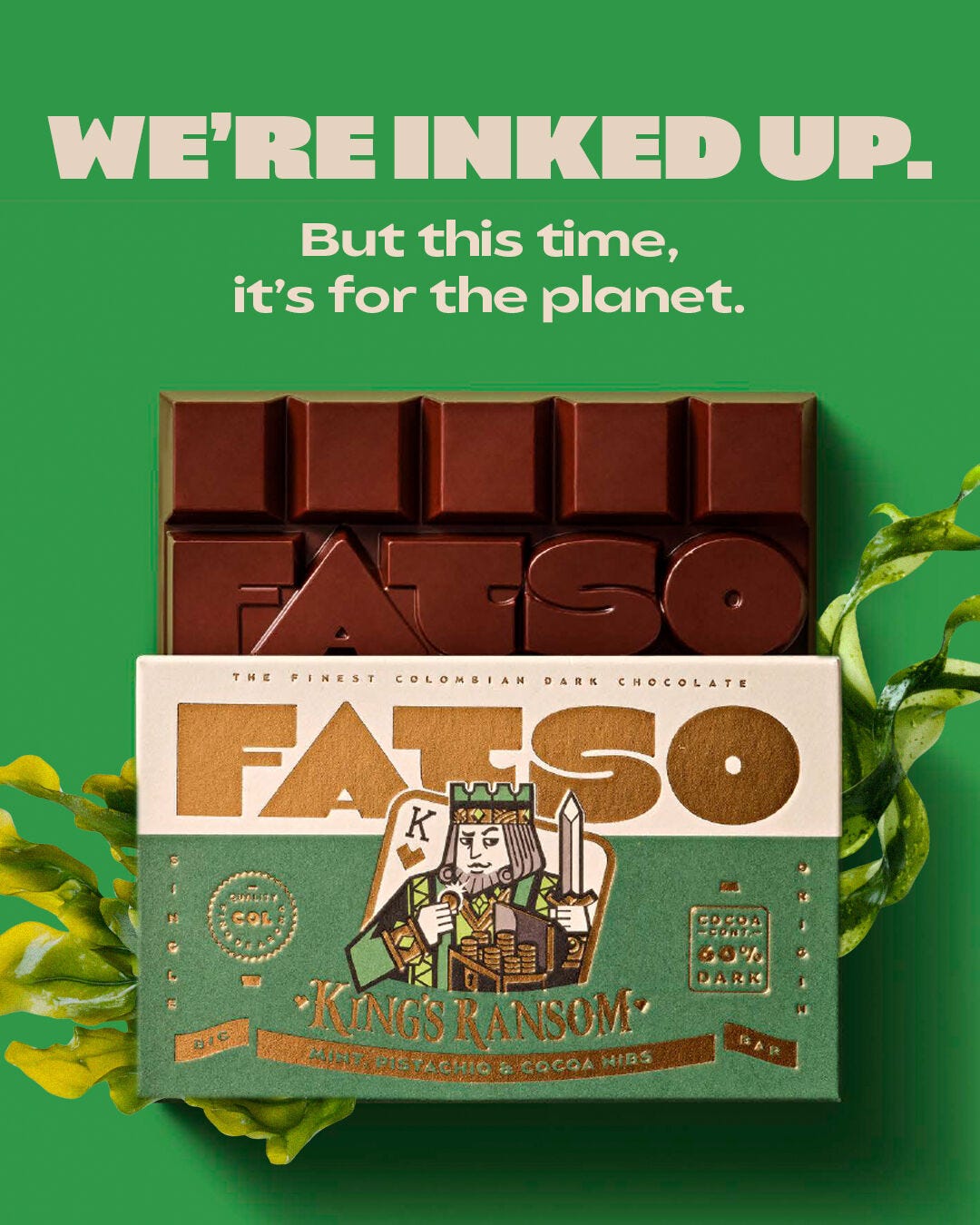
> Finally, in case you missed it…
🌱 Hunting for Hidden Costs and Easter Weggs
We pay for what we consume in more ways than via cash, card or bank transfer. The Hidden Cost of UK Food found that for every £1 we spend to purchase food, we pay another £1 in hidden ways. Why? Because many FMCG production methodologies have impacts that aren’t accounted for - despite the fact that they do have a cost attached. That’s where ‘true cost accounting’ (TCA) comes in.
Want more? Check out our Website! You can find more about the team behind this newsletter, dig through our content archive AND check out our handy databases there too.
Have ideas for what we should write about next? Reply to this email! We’re always looking for inspiration from folks like you.
Until next time!
Team FTF





